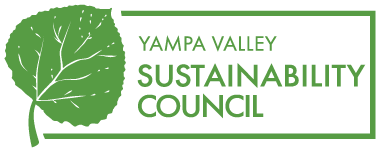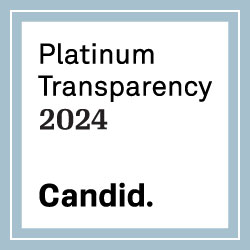MAY 22, 2019 BY
Article adapted from Steamboat Pilot & Today
STEAMBOAT SPRINGS — It’s official. The Steamboat Springs City Council voted 4-3 to ban disposable plastic bags at Steamboat’s largest grocery stores.
Customers are encouraged to bring reusable bags, but paper bags will be available for a 20-cent fee. Those using federal food assistance will be exempt from the fee.
The ban will take effect Oct. 1, though the city plans to kick off an outreach program about the ban this summer.
The ban was brought forward by a group of Steamboat area high school students in Teen Council, who aimed to reduce the impact these bags have on the environment. The group has worked toward Tuesday night’s approval for over a year.
“I feel like this is going to start something bigger in the community, and it can inspire other youth, and I really hope it does,” said Andrew Peterson, a Steamboat Springs High School graduating senior who served on the Teen Council’s executive committee during the past year.
What stores will be required to quit handing out plastic bags?
Stores over 10,000 square feet in size that sell “staple foodstuffs” year round and on a permanent basis will be impacted by the ban. This includes City Market, Safeway, Walmart and Walgreens.
Temporary vendors and stores that sell incidental foodstuffs or snacks aren’t included in the ban.
Stores not required to stop giving customers disposable plastic bags can opt in to the program and keep the entire $0.20 paper bag fee.
What bags are banned?
The ordinance very technically outlines what counts as a disposable plastic bag, which is the specific term for the banned bags. A disposable plastic bag includes any bag thinner than 2.25 milliliters thick, made predominantly of plastic from petroleum, or bio-based sources that is given to a customer at the point of sale to transport goods.
There are a slew of plastic bags within stores that aren’t exempt from the ban. These include:
- Bags to package bulk items such as produce, nuts, grains, candy or small hardware items
- Bags to contain or wrap frozen foods, meat, fish, flowers, potted plants or “other items where dampness may be a problem”
- Bags to contain unwrapped prepared foods or bakery goods
- Bags used to protect a purchased item from damaging or contaminating other items
- Bags containing prescription drugs, newspaper bags, door-hanger bags, laundry-dry cleaning bags
- Bags sold in packages containing multiple bags intended for use as garbage, pet waste or yard waste bags.
Why a 20-cent fee?
The three council members who opposed the measure — Jason Lacy, Kathi Meyer and Sonja Macys — did so, not because they opposed the ban, but because they wanted to see a smaller fee on paper bags.
Lacy said that when looking at the numbers, he was uncomfortable with the amount of revenue the fee would generate, an opinion that Macys and Meyer also voiced. Meyer joked that she might be a cheapskate but a 10-cent fee would be enough to make her remember reusable bags.
“I don’t think people are going to change behaviors with a 10-cent (fee),” council member Lisel Petis said.
Ultimately, most of the council agreed.
What does the city plan to do with the revenue from the fee?
Depending on how many people pay for paper bags, the fee is forecasted to generate $114,072 to $390,232 annually to support a new waste diversion outreach program within the city, according to a memo included in Tuesday’s council documents. This revenue is not allowed to go into the city’s general fund; it can only be used to support the program.
In the first year of the program, city staff plan to spend an estimated $43,147 to $63,147 of fee revenue on reusable bags that will be given away for free to both residents and visitors, according to the memo. It will also work to educate residents, businesses and visitors about the environmental impacts of disposable plastic bags and other trash.
An ongoing campaign aims to continue to provide free reusable bags to people and to fund public education campaigns, infrastructure to reduce waste and increase recycling and community clean-ups and other events that reduce trash. The revenue will also support a website about waste reduction and pay for administration of the program. This is outlined in the ordinance.
Stores will also be able to retain 5 cents of the fee, which the ordinance states stores can use to help cover the costs of implementing the fee, educate customers, train staff and provide reusable bags.
What about visitors who might not bring their own bags?
Using revenue from the fee, the city plans to provide free reusable bags to residents and visitors.
Some property management companies already provide visitors reusable bags. In council’s April 9 meeting, Larry Marshaw, vice president of marketing at Resort Group, said his company provides reusable bags to guests with a card inside that explains why the company provides them.
What about the state law that says municipalities can’t ban plastic bags?
A statute placed on the books in 1993 states, “no unit of local government shall require or prohibit the use or sale of specific types of plastic materials or products or restrict or mandate containers, packaging, or labeling for any consumer products.”
The state solid waste program manager told the Colorado Sun the state doesn’t enforce this statute.
“There is a little bit of a legal risk with a ban because nobody can seem to agree on what that statute means,” City Attorney Dan Foote said at City Council’s April 9 meeting.
Foote said the statute has broad terms, which could mean the city doesn’t have the authority to ban disposable plastic bags. Foote said nobody has challenged a plastic bag ban on the basis of this statute since it came into effect.
“There are eight municipalities out of 272 that have banned them, so we would not be the first, but we would certainly be on the leading edge should we choose to do it and could be subject to a challenge,” Meyer said in April.
Under the Taxpayers Bill of Rights, new taxes have to go to the ballot. Why isn’t that the case here?
Aspen’s 20-cent fee on plastic bags saw a court challenge on these grounds. The case ultimately went to the Colorado Supreme Court. In May 2018, the Supreme Court ruled in a 4-3 decision that the charge was a fee, not a tax, and did not require a public vote.
According to the Aspen Times, the court’s decision noted that unlike a tax, the fee was not implemented to raise revenue for the government. Proceeds from the fee cover expenses associated with providing reusable bags to residents and visitors, as well as funding outreach programs to educate the public on waste and recycling.
To reach Eleanor Hasenbeck, call 970-871-4210, email ehasenbeck@SteamboatPilot.com or follow her on Twitter @elHasenbeck.






